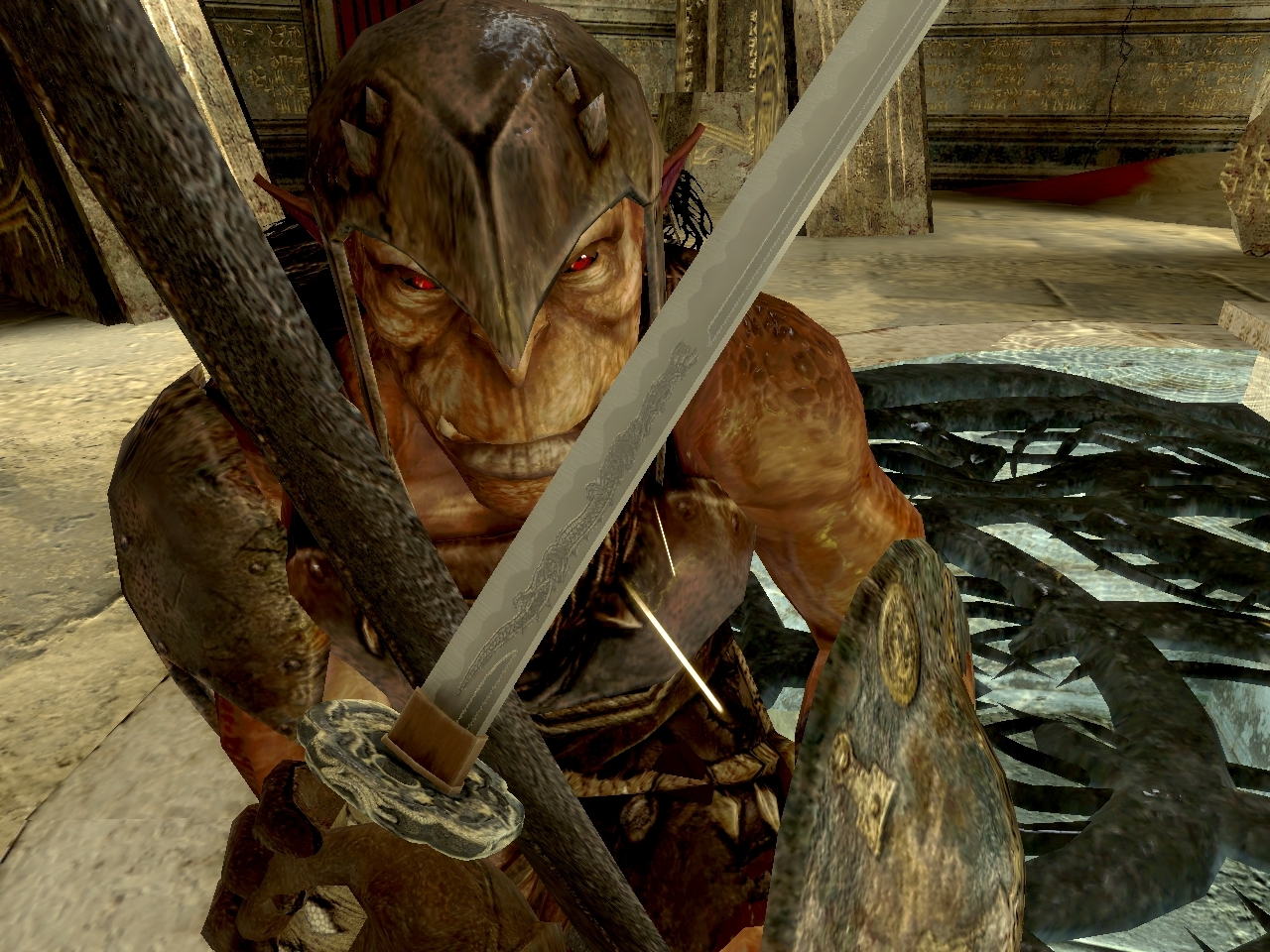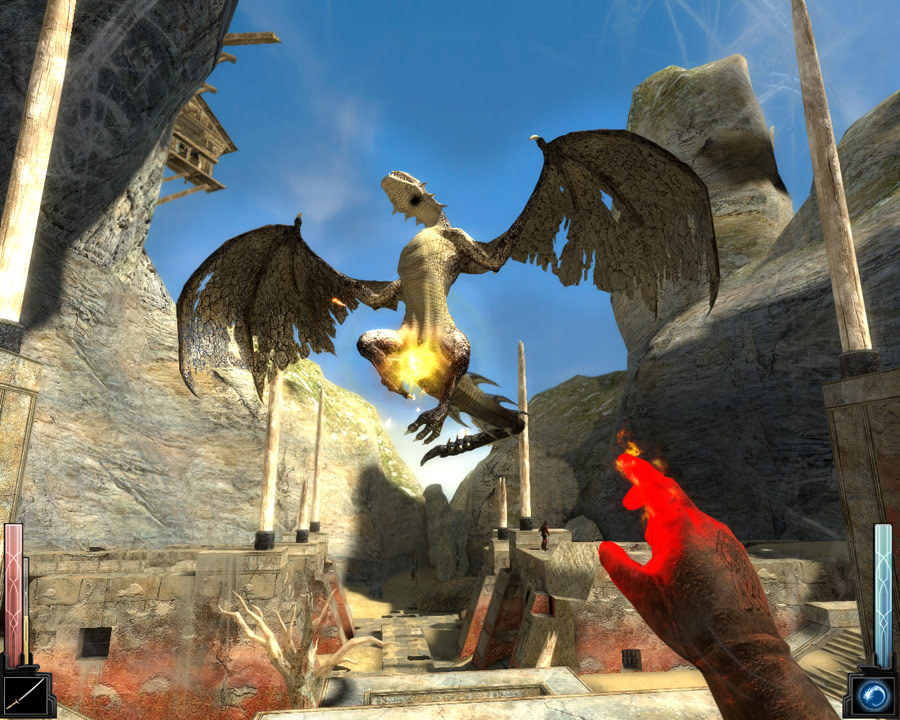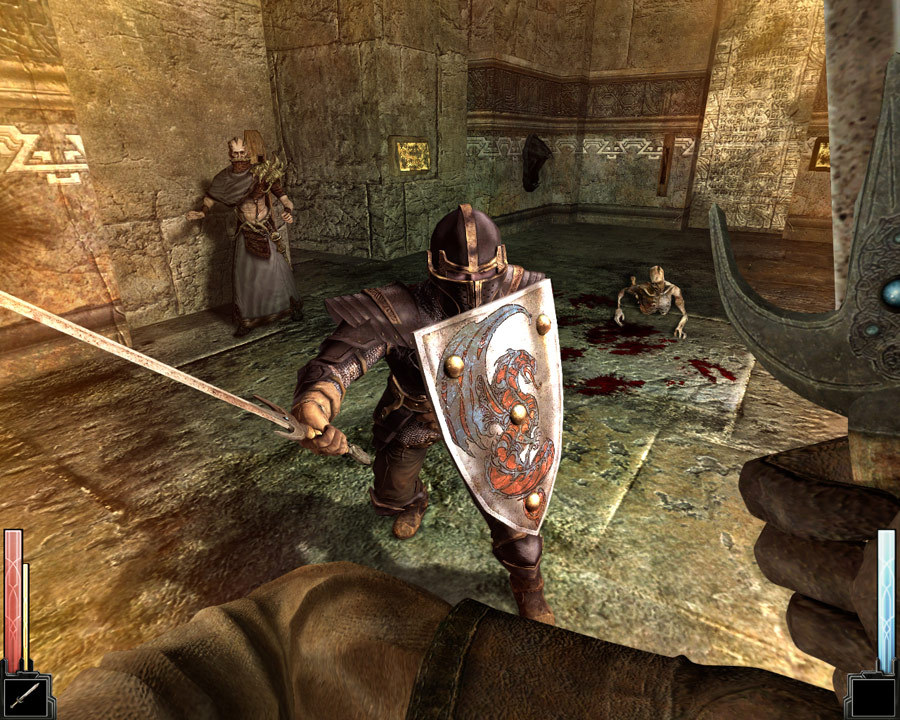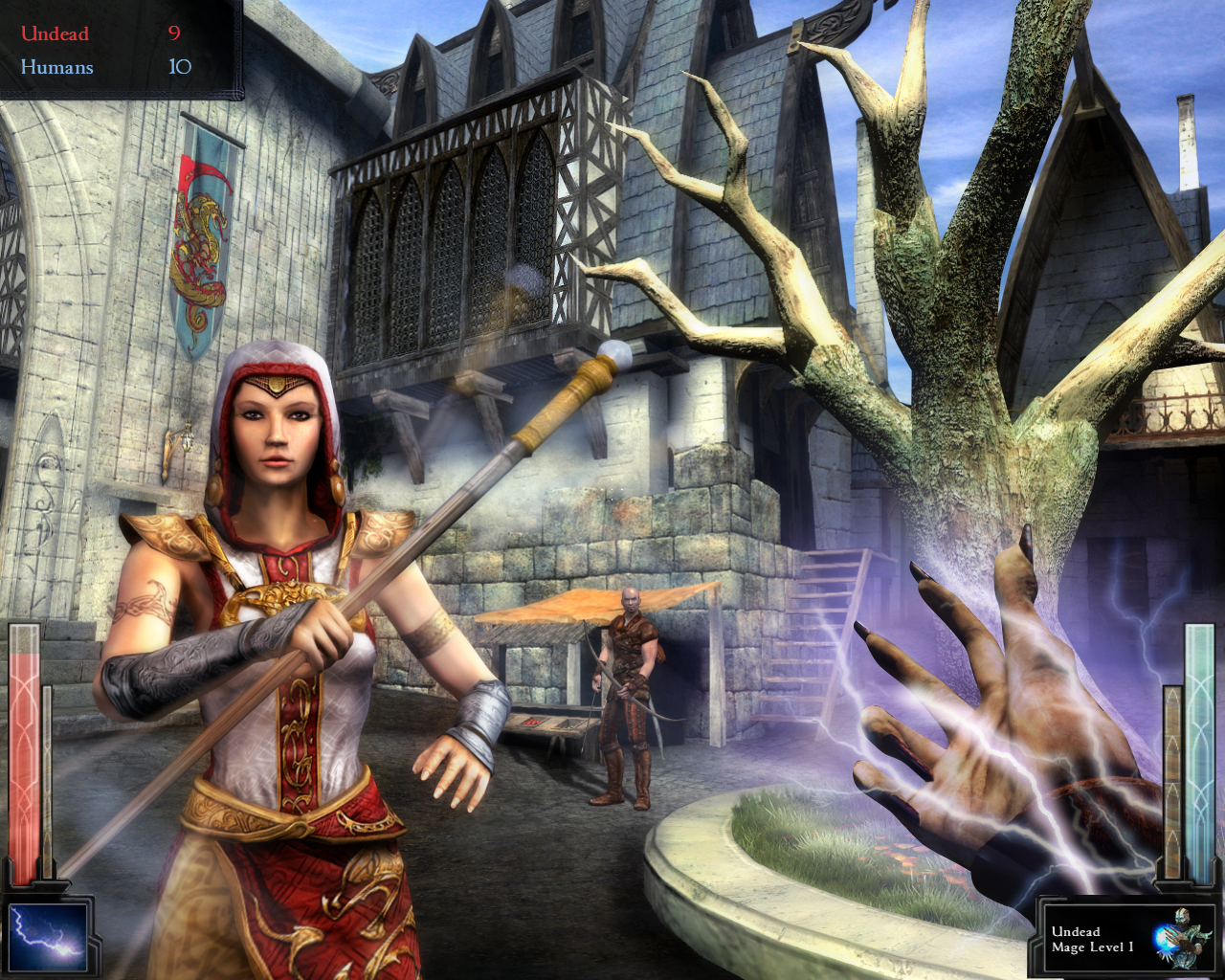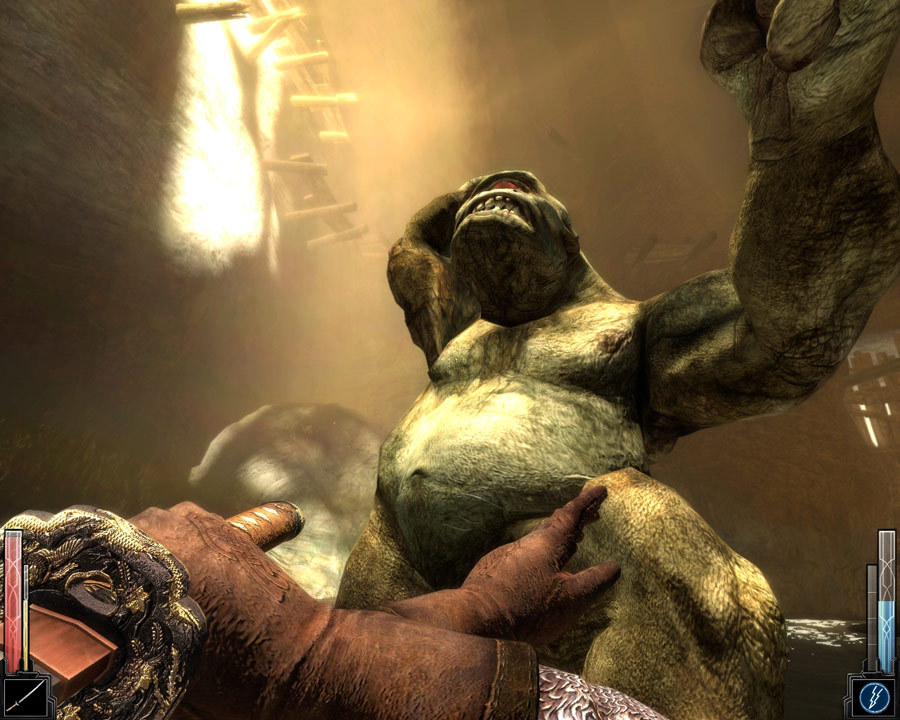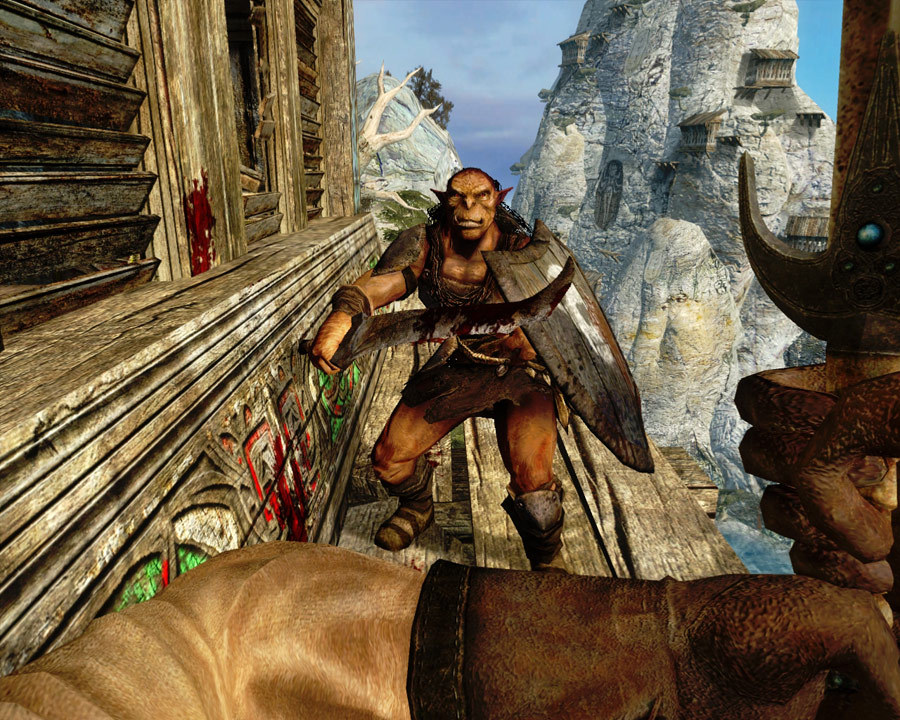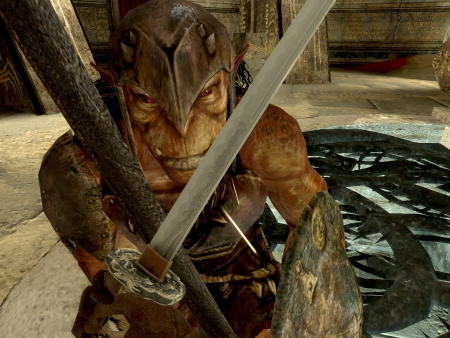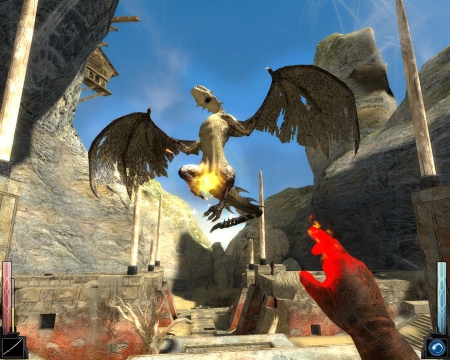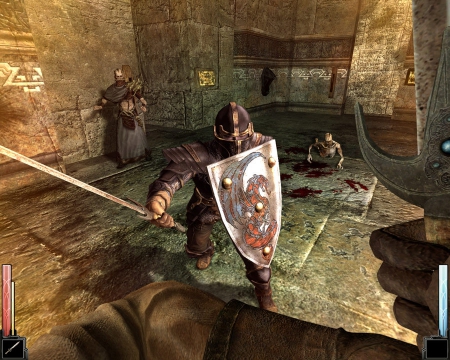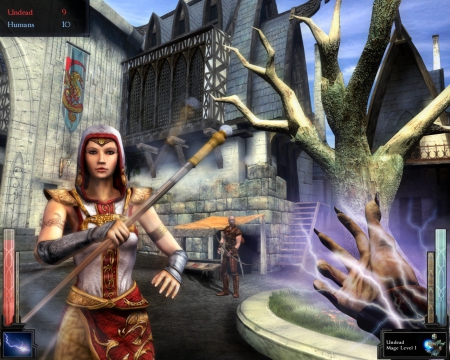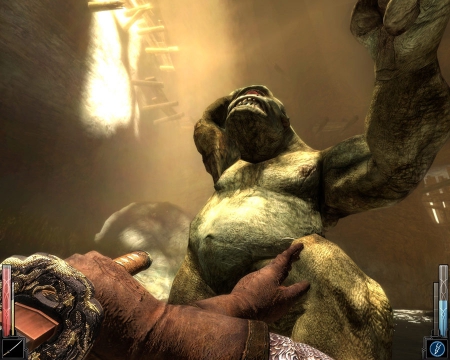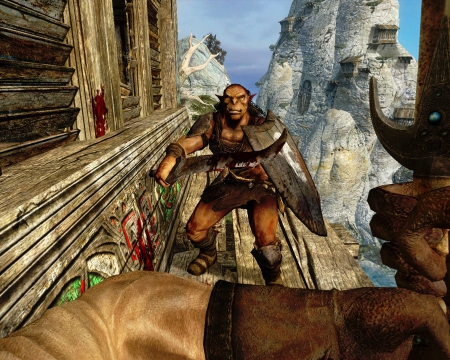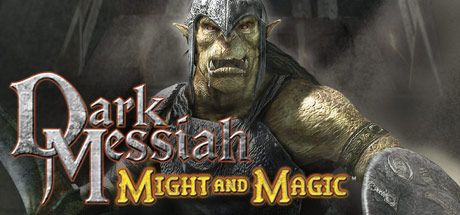*A small portion of the review has been trimmed due to Steam's character limit
Dark Messiah of Might & Magic is an action RPG with a unique take on combat. While most RPGs focus on steadily improving your character’s statistics, Dark Messiah mostly gives you new techniques to use. While there are some of your typical “+2 damage” skills, they are complementary, not the entirety of the skill tree.
Dark Messiah’s progression is directly tied into its combat system. Combat in Dark Messiah is basic on the surface, allowing you to play like a generic action RPG if you choose. You can spend your skill points on damage upgrades and extra health, which makes the game pretty easy, but also a bit bland. Dark Messiah’s strength is forcing you to be resourceful. When you come upon an enemy in Skyrim, you hit them with your sword, cast a spell, or shoot them with an arrow. In Dark Messiah, there is usually a better way to kill someone. Thanks to the dedicated kick key, you can always try to kick someone off a ledge to their death. You can kick them into a sharp object. Sometimes you can cut a rope, causing a heavy object to swing into an enemy, or knock over a pile of barrels. These are all tools you can use in Dark Messiah and it helps keep you engaged, instead of just mindlessly attacking with a sword or fireball.
Dark Messiah blends traditional action RPG combat with its own brand of physics based combat, creating many unique combat scenarios out of relatively basic ideas. For example, knocking someone down is a simple concept. Stabbing someone with your sword is equally straightforward. Dark Messiah gives you the ability to kill any enemy with one hit, as long as they are knocked down. Then the game gives you plenty of tools to achieve this. You could hit someone ten times with your sword to kill them, or you could kick them down the stairs and stab them once. Maybe you’ve unlocked the freeze spell. You could use it to freeze an enemy, or you could use it on the ground to make enemies slip, letting you kill them with a single attack. All of these small interactions between the basic elements of combat gives the player a huge amount of freedom to play how they want.
Progression in Dark Messiah gives the player room to build their character as they wish, outside of a couple exceptions. When the game begins, you are stuck as a swordsman without any major tools to use. You can choose to specialize into either melee combat or mage combat. Technically you can focus on stealth combat or archery, but they are complementary skills and won’t be enough to get you through the game on their own. Mage progression centers around learning new spells and improving your mana (which allows you to cast spells more often). Going down the mage path doesn’t fully lock you out of melee combat because there are a number of mage weapons and armor that allow you to fight in close quarters if need be. Melee progression works the same way, where you are able to primarily fight with swords and shields, but you can easily dabble in magic as well. Stealth has its uses, but many fights won’t give you the opportunity to use it effectively. Similarly, archery is useful at long ranges, but much of the game takes place in cramped hallways and small rooms, limiting its overall effectiveness.
Once you decide on a character build, you need to collect skill points. These are given out sporadically based on quest completion and exploration, not an experience system like a typical RPG. This means you can’t sit around killing hundreds of enemies to get better, you need to explore or simply keep playing. Finding secret rooms will reward you with skill points, weapons, armor, potions, scrolls, or a mix of them. Oftentimes a weapon you would normally find after a mission can be found a level or two earlier if you discover the secret room that contains it. Some secrets are limited by your character build, such as requiring lockpicking or telekinesis. It’s a fun way to liven up the game and make it less linear, while also allowing players to ignore it if they don’t enjoy hunting for secrets.
The combat mechanics of Dark Messiah are easily the highlight of the game, but the game’s weakest area is its story. The game begins as a straightforward fantasy game, complete with a magical artifact, a big bad guy that wants it and a hero that needs to stop them in order to save the world. There is some foreshadowing for a couple of the game’s twists, but it’s too obvious and winds up spoiling it before you even have a chance to know what’s going on in the game world. Nearly every character in the game is a basic archetype with no thought put into making them feel original. You have a generic soldier, an elderly mage, a demon, etc. None of them are memorable, aside from the demon (for a reason that is a major spoiler). The overall plot of the game is painfully familiar and only serves the purpose of forcing the main character to the next location. Dark Messiah clearly expects you to focus on the combat and tune out the story, and frankly, I’m okay with that. More games should be willing to specialize in a few main areas, rather than be a jack of all trades. Dark Messiah knows that it has a varied, interesting and all-around fantastic combat system, and it doesn’t worry about having a complex narrative.
While the story is severely lacking, the presentation in Dark Messiah is consistently solid. The visuals are clearly dated, but they look fine for their age. Most of the heavy lifting is done by the level design and art direction, as opposed to the graphics having a high technical quality. Some levels feature huge set pieces in which you run through a collapsing city, while others might slow the game to a crawl as you explore a labyrinthine network of catacombs. Most locations look amazing, especially given the relatively mediocre texture quality. Dark Messiah is a perfect example of a game whose visuals are greater than the sum of its parts. Some locations can be a little bland, but they make sense in the context of the game, so it’s excusable.
When it comes to sound in Dark Messiah, it’s a bit of a mixed bag. Most of the music is good, but it can get repetitive. Even though each individual track is high quality, they all fall into two groups; either exciting combat tracks or low key exploration tracks. There isn’t much music in the game, so listening to the same ~20-25 minutes of music looped over and over again makes even the best tracks feel a little stale.
Voice acting is another issue for Dark Messiah, where some characters have great vocal performances, and others are completely bland and generic. Ironically, I found that the nameless NPCs tended to have much better voice acting than the main characters. Given the focus on combat over storytelling, this actually makes sense, as most of your time is going to be spent listening to random enemies talking to you, rather than important characters.
Overall, Dark Messiah is a great game that pairs a unique combat system with varied RPG mechanics, while also suffering from a conventional fantasy story. If you play RPGs for the story, skip Dark Messiah. There are much better story-based RPGs out there for you to play, often with good or at least decent gameplay. If you play RPGs for the combat and character progression, Dark Messiah is near perfect. The combat is challenging (depending on difficulty) but it forces you to work with what you have, rather than just throwing hordes of enemies at you. There is definitely more emphasis on the action part of action RPG, but if you know that ahead of time, you’ll enjoy your time with Dark Messiah.
8/10
Zitat:
Visit our
website for more in-depth reviews and recommendations
